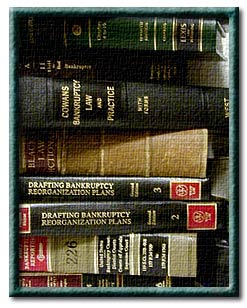 By Craig Rozelle
By Craig RozelleChapter 11 bankruptcy is a form of corporate financial reorganization in which a company's assets get sold off to pay creditors. In some cases, Chapter 11 bankruptcy allows companies to continue to function. The benefit of Chapter 11 over other forms of bankruptcy is that businesses are allowed to continue to operate and will generate revenue, protect jobs, and eventually be able to pay off creditors. Scraping and selling businesses for their parts, on the other hand, may lead to less than optimal utilization of company resources. Chapter 11 bankruptcy filings may be “strategic”. In other words, management may wish to reorganize for political reasons, not simply for the sake of balancing books. Individuals may also apply for chapter 11 occasionally but generally it is reserved for companies. There are certain large publicly vested entities which are legally not allowed to file for Chapter 11 bankruptcy. Insurance companies, utilities, and certain conglomerates may not have the privilege of filing and may thus have to reallocate or redistribute funds to creditors under other applicable laws. In large-scale bankruptcy cases, the federal government can get involved. Much of Chapter 11 bankruptcy case law is devoted to the finding what constitutes asset exemptions under the law.
Sources:
http://www.superpages.com/supertips/what-is-chapter-11-bankruptcy.html
http://www.uscourts.gov/bankruptcycourts/bankruptcybasics/chapter11.html
http://www.moranlaw.net/chapter11.htm
No comments:
Post a Comment